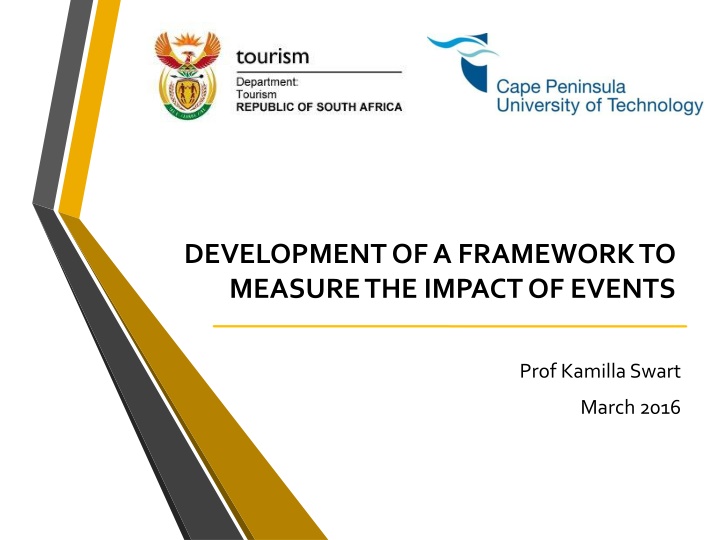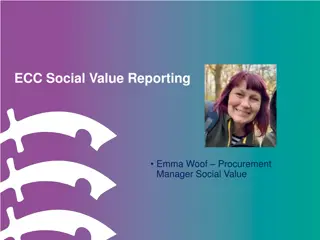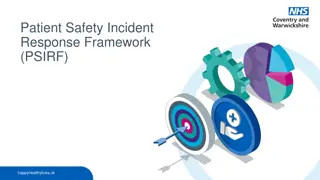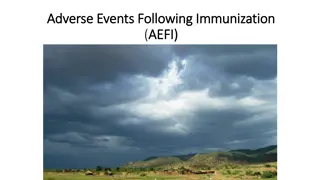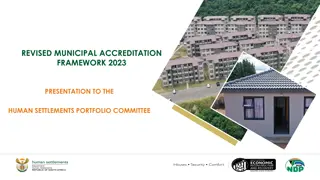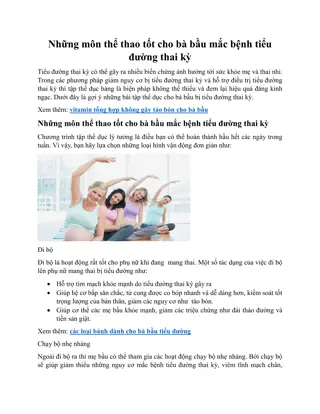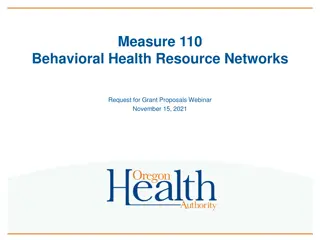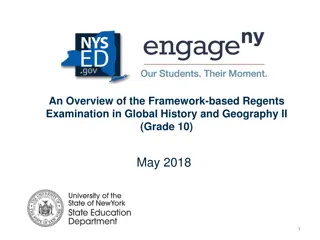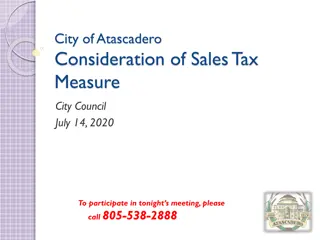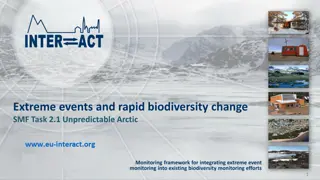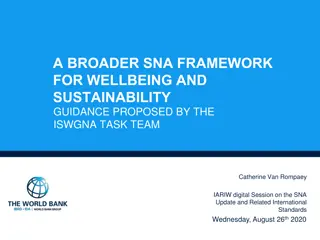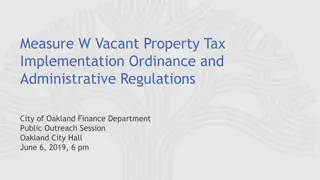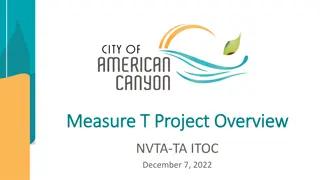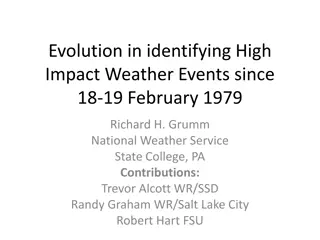Development of a Framework to Measure the Impact of Events
Developing a standardized framework to assess the impacts of events in tourism marketing in South Africa. It aims to address the current lack of a uniform methodology for evaluating different types and sizes of events, beyond just economic impacts. The project involves literature review, indicator development, piloting, and finalizing the framework for implementation, with a capacity-building component for stakeholders.
Download Presentation

Please find below an Image/Link to download the presentation.
The content on the website is provided AS IS for your information and personal use only. It may not be sold, licensed, or shared on other websites without obtaining consent from the author.If you encounter any issues during the download, it is possible that the publisher has removed the file from their server.
You are allowed to download the files provided on this website for personal or commercial use, subject to the condition that they are used lawfully. All files are the property of their respective owners.
The content on the website is provided AS IS for your information and personal use only. It may not be sold, licensed, or shared on other websites without obtaining consent from the author.
E N D
Presentation Transcript
DEVELOPMENT OF A FRAMEWORK TO MEASURE THE IMPACT OF EVENTS Prof KamillaSwart March 2016
Introduction Events important element in tourism marketing Various national tourism strategies emphasise role events play to develop tourism Many purported benefits BUT methods of measuring & evaluating impacts vary NDT Lekgotla (2012) requested research be conducted to develop a standardised framework to assess event impacts 2
Introductioncont. Problem: currently no standardised methodology exists to assess types of impacts on a range of events of different types and sizes o Where studies exist, focus on economic impacts Purpose: To develop a standardised framework to measure, monitor and manage the impacts of events of different types and sizes in South Africa 3
Introductioncont. Phase One (2013-2014): reviewing literature, accompanying models and approaches of evaluating events and identifying relevant indicators to measure impact of events Phase Two (2014-2015): finalising development of indicators, piloting and evaluating five events of different sizes, spread across Provinces Phase Three (2015-2016): developing, piloting and finalising framework for implementation o Capacity building of NDT and provincial officials in utilising framework o Development of training manuals for implementation and workshop facilitation 4
Event tourism Systematic planning, development and marketing of planned events as tourist attractions Significant benefits for place marketing, image making, and development (Getz, 1997) Categories of events: o Mega-events o Hallmark or iconic events o Major events o Local or community events 6
Event impact assessment Approaches Models Sport Tourism Economic Assessment Model (STEAM) Olympic Games Impact (OGI) Study UK Sport EventIMPACTS Sport Event Impact Model (SEIM) Global Sports Impact (GSI) Project Economic Social Environmental Media 8
Research approaches in SA Direct economic impact assessment most commonly used o Very few studies calculate indirect impacts (multipliers) Social impact studies conducted in few provinces 2010 FIFA World Cup studies conducted in various provinces o SEIM o Media impact 9
Phases 1 2: Development of indicator framework
Indicator development process Definition Criteria Comprehensive and cover range of impacts Informed by literature Themed by type of impacts Consider different type of events Prioritised 11
Indicators developed Five key thematic impacts have been grouped o Economic/ financial o Social o Environmental o Event-sector specific o Event planning and management (governance) Indicators for a specific event or event types will differ and need to be selected: o Type of event o Objectives of specific event being evaluated Indicators have been prioritised o High: Must be done o Medium: Depends on type of event and resources available o Low: may be difficult to access information 12
Phase 3: Pilot & Finalising Framework
Pilot survey instruments Indicators used to develop instruments Ensure instruments appropriately developed Attendee survey Event organiser (EO) survey Assessed construction of questions Whether methodological approaches are appropriate Interviews conducted within reasonable timeframes 15
Pilot survey instrumentscont. Attendee survey Attendee profile Event attendance and consumer behaviour Travel, accommodation and spend Knowledge and perceptions of event and destination o Including environmental questions Demographic profile 16
Pilot survey instrumentscont. EO survey Organiser profile Budget and expenditure Employment and skills development Responsible tourism Organisation of event Satisfaction with event 17
Pilot survey instruments cont. Conducted at World Congress for Psychotherapy o Durban (KZN) - 28th & 29th August 2014 Conducted at McGregor Food & Wine Festival o McGregor (Western Cape) - 30th August 2014 Developing templates for data inputting using SPSS & generating tables Undertaking economic impact analysis Finalising process report to refine instruments 18
Event evaluations Sampling framework developed Data collection concentrated at main event venues Systematic, spatially-based purposive sampling approach Attendee sample size determined by no. of attendees EO questionnaire mailed to EO post-event Economic impact conducted by economist Economic contributions made by two main event stakeholders 19
Description of events EVENT PROVINCE TYPE SIZE DATE Sport/Adventur e 31 Oct 1 Nov 2014 VDF Free State Large KwaZulu- Natal WPC Conference Small 3-8 Nov 2014 Lifestyle/Fancy Dress Party MCQP Western Cape Large 20 Dec 2014 TCH Gauteng Sport/Triathlon Medium 15 Feb 2015 26-28 Feb 2015 MF Limpopo Lifestyle/Music Large 20
Targeted sample vs. actual sample WPC (n=91) VDF (n=310) MCQP (n=300) TCH (n=200) LMF (n=300) T A T A T A T A T A Atten dees 100 91 300 310 300 300 200 200 300 300 EO 1 1 1 1 1 1 1 - 1 1 Note: T: targeted sample; A: actual sample 1202 attendees surveys All EOs responded (4) except one 21
Attendee numbers by category Overnight visitor/ tourist Day- visitors Local resident Total Sample % Total Sample % Total Sample % Total Sample % Total Sample % Total 64 63 183 310 100 8000 200 100 5000 91 100 430 300 100 8172 300 100 20547 VDF 20.65 1652 20.32 1626 118 59.03 4722 25 57 TCH 12.5 625 57 62.64 269 59 28.5 1425 30 32.97 142 236 78.67 6429 173 2950 4 WPC 4.4 19 19 6.33 517 44 15 3014 45 15 MCQP 1226 83 28 5685 LMF 58 11849 23
Attendee average spend in categories WPC (n=91) VDF (n=310) MCQP (n=300) TCH LMF (n=300) (n=200) Tickets R9 152.17 R972.15 R476.48 R1725.45 R248.46 Food/ beverages R2 285.98 R470.91 R601.08 R374.54 R545.01 Event-related articles R901.74 R276.91 R39.47 R532.5 R91.32 Shopping R2 062.78 R428.88 R195.96 R336.67 R195.96 Transportation R4 418.25 R418.34 R874.22 R278.16 R493.93 Accommodation R8 790.22 R1 684.57 R601.89 R1118.18 R1 077.80 Other expenditures R1 865.00 R275.47 R259.03 R20.00 R66.50 Overall spend R16 050.46 R1 813.13 R3 358.01 R2649.31 R2 919.49 24
Budget for event in categories WPC (n=1) R2 million VDF (n=1) R607 141 MCQP (n=1) R2 765 158 R6.5 million LMF (n=1) Overall spend Capital expenditure (e.g. facilities, equipment, infrastructure, etc.) Venue hire R70 000 R343 079 - R2 500 000 R630 000 R85 450 R273 500 R150 000 Salaries and wages Advertising and marketing (include media and broadcasting costs) Travelling and accommodation Translation services and equipment All other costs R200 000 R52 170 R405 500 R200 000 R350 000 R45 839 R627 100 R680 000 R650 000 - R251 200 R250 000 R400 000 - - - - - R1 207 858 R2 720 000 25
Economic impact VDF TCH WPC MCQP LMF Visitor expenditure R4 231 105 R4 958 504 R2 313 753 R7939 003 R29 292 115 Organiser expenditure R526 538 - R1 975 000 R6 500 000 R6 375 000 Direct impact R4 757 643 R4 958 503 R4 288 754 R10 578 561 R35 667 116 Total impact (low) R5 233 408 R5 454 353 R4 717 629 R11 636 417 R39 233 827 Total impact (high) R6 660 701 R6 941 904 R6 004 255 R14 809 985 R49 933 962 26
Conclusion Standardised methodology o Make diverse events comparable o Permits comparison of economic impact across events Attendees and EOs surveys sufficient to undertake economic impact assessment Vital EOs provide financial data as required Important for calculating public multiplier which was weakest aspect of analyses o Due to lack of public spend being declared across events 28
Conclusion Current survey instruments provide data to assess TBL initially envisioned Pre-event planning and co-operation of EO critical to sampling framework and ensuring timeous accreditation access Provinces play important role in facilitating access Incompletion of EO survey impacts economic impact calculations as EO only stakeholder provide information about event expenditure and (local) services procured Basis of proposed Event Evaluation Framework o Provide more strategic approach to evaluate NDT and/or Provincially-supported events in consistent manner o Assess impact of events on tourism sector o Justify funding for events from public and private sectors 29
Strategic orientation of Event Evaluation Framework is intended to: Simplify and standardise approach Assess impact of events of different types and sizes in different localities Account for different types of impacts Improve data collection to ensure relevance, quality, validity and accuracy of data Permit comparisons between events and track changes over time in relation to impacts of NDT and/or Provincially-supported events Standardise return on investment (ROI) of economic impacts Generate information that can assist in making decisions regarding which events should be supported or continued to be supported 30
Phase 3 of research project has resulted in: Development of data collection instruments for event evaluation purposes that can be implemented across different types and sizes of events supported by NDT and/or Provinces Development of indicators to inform Event Evaluation Framework Development of a training manual for data collection instruments and sampling framework for primary data collection as well as for undertaking economic impact analysis 31
Key issues for consideration If budget does not permit all NDT and/or Provincially- funded events to be evaluated, then sampling of different events be undertaken on annual basis EO survey be completed to provide information on TBL aspects from EO perspective Overall TBL assessment of event, attendee surveys must be included Baseline information already in place, regular evaluations undertaken to track changes over time NDT and/or Provinces identify target/flagship events evaluate on annual basis 32
Key issues for consideration To ensure proposed Event Evaluation Framework is practical and implementable: o Drafting of and/or revision of contracts to ensure compliance of EOs to provide information required o Revised attendee and EO surveys including master template Indicators should be revised on an annual basis Need for continuous adaptation of Framework Impacts can be ascertained event by event and longer term impacts examined annually 33
Roles and Responsibilities Review baseline indicators and data collection instruments Screen and select events to be supported NDT/ Provinces Work with research team to identify events to be sampled if all events are not being evaluated Ensure contractual obligation for EOs to provide information needed Project manage event evaluation deliverables Completion of event organiser survey (especially in relation to financial information which affects economic impact calculation) and provision of all other event related information Event organiser Provide and facilitate access to event venues which was a challenge in certain instances and affected reaching targeted samples Interpretation/ adaptation of baseline indicators and data collection instruments (in consultation with NDT and/or Provinces) Event evaluation research team Development and maintenance of data collection instruments Data collection and reporting Select and train fieldworkers, where applicable Calculation of economic data 34
Key issues for consideration Likely to be several risks in relation to Framework implementation need to be addressed to ensure successful event impact evaluation: o Commit resources for event impact evaluation, including adequately trained HR o Ensuring compliance on part of EOs o Ensuring quality data across all events monitored and evaluated o Timely reporting (from EOs, NDT/Provinces and event evaluation specialists) Proposed Framework provides when, how and who in relation to event supported by NDT and/or Provinces Training Manual including data collection instruments (and SPSS templates for data inputting) available for implementation of finalised Framework 35
Recommendations Cognisance of arrangements for research at events and consideration for partnership and collaboration to ascertain relevant data Questionnaire-specific recommendations effected to revised survey instruments in training manual Master template created and adapted for specific event requirements Checked by trained tourism researcher (not just statistician) Importance of trained fieldworkers and supervisors 36
Limitations Challenge getting EOs to respond timeously oDeveloping sampling framework and completing survey Accessing precise economic data from EOs required oPoorly completed in some instances Ensuring higher response rates for all events evaluated in future o Will limit bias and increases credibility, reliability and quality of data 37
THANK YOU Kamilla Swart swartk@cput.ac.za
